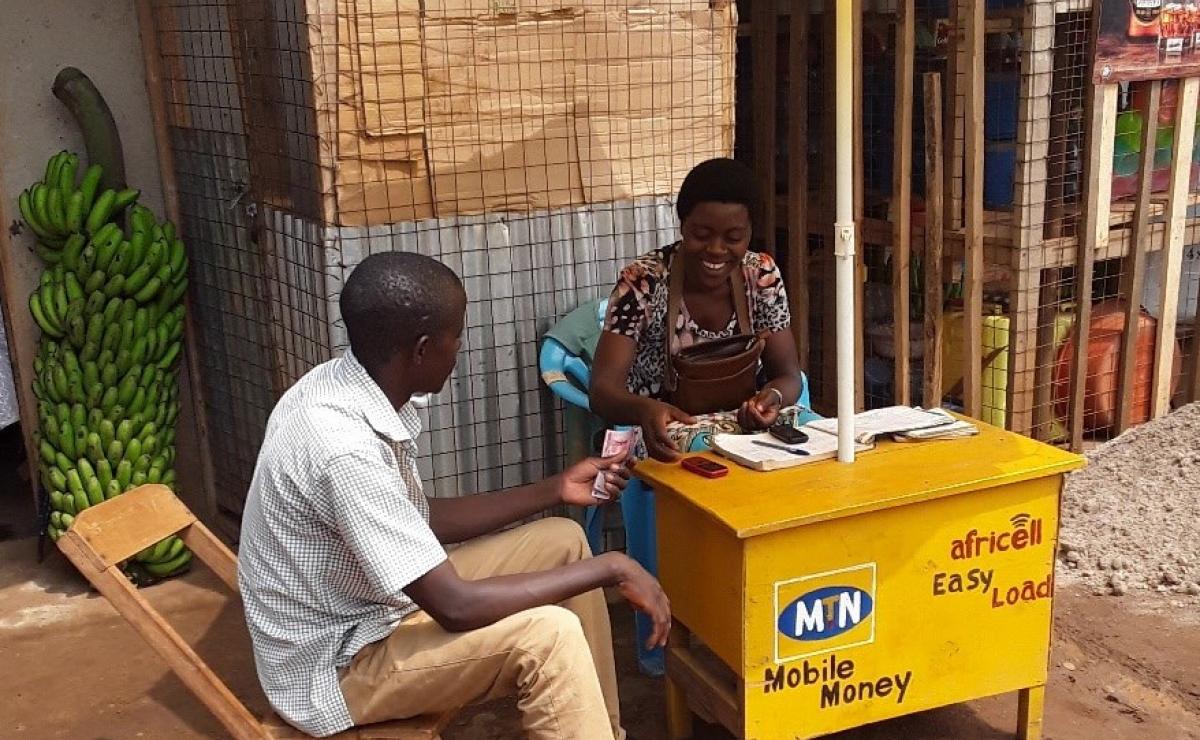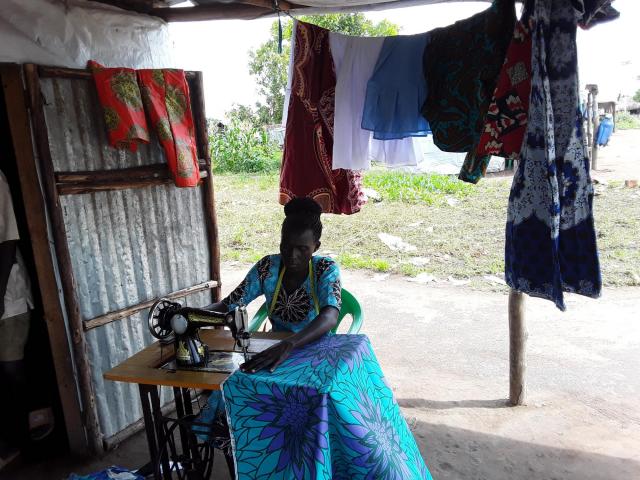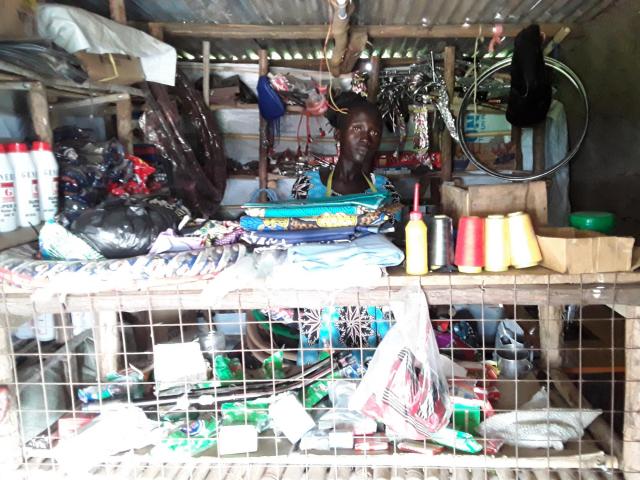SALIMA project offers economic empowerment for refugees

“We are not only surviving but also steadily developing,” says Vestina, a 25-year-old Congolese single mother, expressing her gratitude towards the Lutheran World Federation and partners for the support. Vestina is living in Western Uganda's Kyangwali refugee settlement, after fleeing the tribal clashes in The Democratic Republic of Congo in February 2019.
When she arrived in Uganda with her 3-year- old daughter, they had left behind all their belongings, with no income, depending on the monthly food ration. LWF with funding from the Bureau of Population, Refugees, and Migration (PRM), identified her as one of the most vulnerable people, and she was supported with Enterprise Development Cash Grant to establish a business of her choice.
The project intervention is aligned with the Settlement Transformation Agenda (STA) which focuses on promoting Self-Reliance and Resilience among Refugees and Host Communities.
“I saw an advert by LWF in October 2019, and I picked interest to apply since it was my dream to start a business that would help me generate daily income that would support me and the child," Vestina recollects.
“Having succeeded, I and other colleagues were trained in business management for one week where we learnt about enterprise selection which helped me to gain business management skills. From the training, I picked interest in operating the mobile money business since it doesn’t require a big space.
We were asked to provide our mobile money numbers through which LWF would transfer cash for us to start businesses. I was very excited when I received a transaction message of UGX 1,000,000 (about $270) on my phone in April 2020. Immediately, I invested in the mobile money business. Since then, my business has grown to UGX 1,763,000 (about $476) with an average profit earning of UGX 70,000 every week. The boost in the business has not only enabled us to access basic needs but also diversified our diet because we can supplement the food rations given to us every month with other foods”.
Despite the current challenge of fraudsters who try to cheat the business operators and reduced business due to COVID-19, Vestina is still optimistic.
Lamwo
In Lamwo District, a similar story is told by Amal, who is yet to come to terms with the fact that with the financial support extended to her, her life has changed for the better; “At times I feel like I am dreaming but later realize that its real. It becomes difficult for me to believe that my family can also manage to get at least two meals a day, provide needs to the family as well as educate my children. My God is a living God”.
Amal is one of the South Sudanese refugee women residing in Palabek settlement after fleeing the war that left many people in her village dead in 2017. The 30-year old single mother also takes care of an extended family of seven people;” Life became even harder on arrival at Palabek refugee settlement because my big-sized family was unmanageable.
We could hardly afford basic needs like food and other utilities. We largely depended on the little food distributed, but which was not enough. I resorted to working in people’s gardens within the host community and also sold local brew to raise some money for the family meals. This was not sustainable though. I had lost hope as the attempts I made to uplift my economic status ended in a reverse direction.
The turning point was when she became part of a farmer group; “I will never forget that day our local leader came with people I was meeting for the first time and were looking for refugees who can be supported to do farming under the SALIMA livelihood project.”

The project runs from 2019 to 2020 with support provided in Village Savings and Loans Association (VSLA), and Farmer Field School (FFS) approach, as well as backyard farming support. The farmer groups are trained in agricultural and entrepreneurship skills and later supported with farm inputs including seeds and farm tools.
Amal was trained in VSLA methodology and was able to save 500,000 UGX ($134) in the first cycle. She used it to buy a set of sewing machines, material for making school uniforms, paying ground rent and procurement of other equipment needed to start a tailoring workshop.
With her farmer's group, Florence planted two acres of sesame and harvested 400 kg last season. The profits enabled her to venture into the poultry business and construct a house for her family. “Right now, I can afford to provide my family with a balanced diet and at least three meals a day unlike before.”
Amal has created other avenues of income as well; she owns a motorcycle and bicycle spare parts shop. During COVID-19 period, she was contracted by LWF and UNHCR to sew face masks for refugees in Palabek settlement. These ventures support her dependents to attend good private school.
“I thank LWF more than I can express because, without them, I would not have realized my capacity to be what I am today. God bless LWF,” Amal appreciates.

Adjumani
In Nyumanzi refugee settlement in Adjumani district, Ayen 37, depended on the food rations provided by the World Food Programme (WFP) which was not enough to feed her six children. “Life was very difficult,’’ Ayen remarks.
Before the 2-year SALIMA project, Ayen farmed on small scale to make ends meet until September 2019 when she was identified as one of the at-risk women to be supported with the conditional cash grant. She was trained in business management and supported with a cash grant of UGX 400,000 (about $111). With this cash support, she started a retail shop selling items like sugar, soaps, and salt.
“Currently my business is doing very well. I earn a profit of over UGX50,000 per month. I use it to support my family and meet other basic needs. I am so grateful for the support rendered to me by LWF”, Ayen says with joy.

